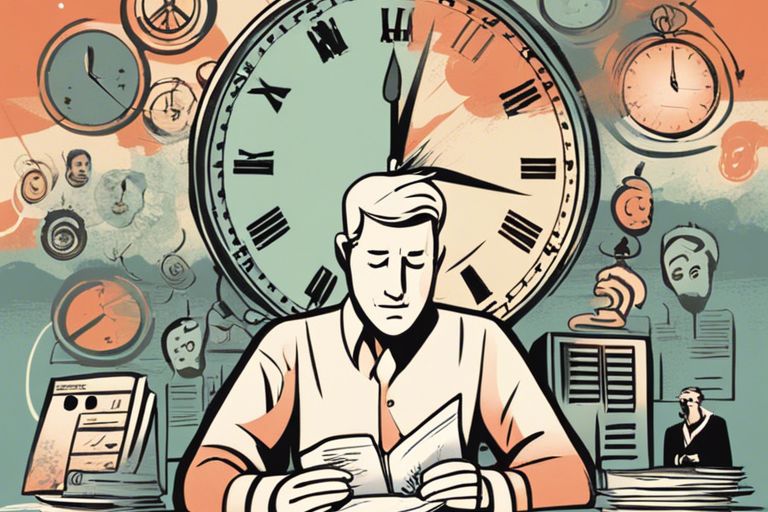How Does an Innocent Person React When Accused of Cheating?

Just as accusations of cheating can turn one’s world upside down, the reactions of an innocent person to such claims can be equally tumultuous.
The emotional turmoil, disbelief, and anger that come from being falsely accused can be overwhelming.
In this blog post, we will probe into the various ways in which innocent individuals might respond when faced with such a challenging and potentially damaging situation.
Key Takeaways:
- Stay Calm: It’s important for an innocent person to remain composed and not react emotionally when falsely accused of cheating.
- Ask for Evidence: Request concrete proof or evidence from the accuser to support the cheating allegation.
- Seek Support: Reach out to trusted friends, family members, or professionals for advice and emotional support during this challenging time.
- Communicate Effectively: Clearly communicate your side of the story and provide any relevant information that can help clarify the situation.
- Stay Truthful: Maintain your honesty and integrity throughout the process, as the truth will eventually prevail.
Psychological Impact of Being Wrongly Accused
Emotional Responses
Responses to being wrongly accused of cheating may evoke a range of intense emotions in an innocent person. These emotions can include shock, disbelief, anger, frustration, and sadness. The individual may feel overwhelmed by a sense of injustice and betrayal, causing emotional turmoil that can be difficult to cope with.
Behavioral Responses
Impact of being wrongly accused can manifest in various ways, affecting the individual’s behavior. They may withdraw from social interactions, experience difficulty concentrating on tasks, or display signs of anxiety or depression. The stress of the situation may lead to changes in eating or sleeping habits, as well as a decline in overall mental well-being.
The psychological impact of being wrongly accused of cheating can have lasting effects on an individual’s mental health and relationships. It is crucial to address these emotional and behavioral responses in a supportive and understanding manner to help the innocent person navigate through this challenging experience.

Patterns of Defense
Denial and Asserting Innocence
Innocence is often the initial response of an innocent person when accused of cheating. They vehemently deny any wrongdoing and assert their innocence in the face of the allegations. This defense mechanism is rooted in the natural human reaction to protect one’s reputation and integrity. The accused may feel offended and defensive, leading them to adamantly reject the accusation.
Seeking Evidence and Witnesses
To navigate the accusations of cheating, innocent individuals often seek out evidence and witnesses to support their claims of innocence. Whether it be text messages, witness statements, or alibis, gathering evidence becomes crucial in proving their side of the story. By presenting concrete proof of their innocence, the accused aim to dismantle the allegations and establish their credibility.
Another critical aspect of seeking evidence and witnesses is to debunk any false claims made against them. By strategically presenting evidence that contradicts the accusations, the accused can undermine the credibility of the accuser and cast doubt on the validity of the cheating allegations. This methodical approach can help in preserving their reputation and refuting any unfounded claims.
Social and Relational Consequences
Effects on Personal Relationships
On a personal level, being accused of cheating can have a devastating impact on relationships. Friends and family may start to doubt the accused individual’s character, causing rifts in previously close bonds. Trust, once broken, is not easily repaired, and the individual may find themselves isolated and unsupported during such a challenging time.
Impact on Social Standing and Reputation
Personal reputation and social standing can take a severe hit when someone is wrongly accused of cheating. Gossip and rumors can spread quickly, tarnishing the individual’s image in the eyes of their community. Professional opportunities may be lost, and social invitations may dwindle as the stigma of being a cheater lingers.
Plus, dealing with the aftermath of these accusations can be emotionally draining and mentally exhausting. The constant need to defend oneself and prove innocence can take a toll on both the accused individual’s mental health and overall well-being.
Coping Mechanisms and Support Systems
Legal and Therapeutic Avenues
Many times, when falsely accused of cheating, individuals may turn to legal and therapeutic avenues for support. Seeking the guidance of a legal professional can help in understanding one’s rights and options in such a situation. Additionally, therapy or counseling can provide a safe space to process the emotional toll of the false accusation and develop coping strategies to navigate through the challenging time.
Community and Social Support
With the emotional turmoil that comes with being falsely accused of cheating, having a strong support system in the community and socially can make a significant difference. Family, friends, or support groups can offer empathy, understanding, and validation during such a stressful time. Engaging with others who believe in your innocence can help restore trust and confidence in oneself.
A crucial aspect of community and social support is to surround oneself with positive influences that uplift and encourage during this challenging period. Interacting with individuals who provide emotional and mental support can aid in maintaining a healthy mindset and outlook while navigating through the ordeal of false accusations.
To wrap up
Presently, when an innocent person is accused of cheating, they may react with shock, disbelief, and confusion. It is crucial to remain calm, gather evidence to prove their innocence, and seek support from trusted individuals. It is also important to handle the situation with integrity and honesty, while allowing the truth to come to light. By maintaining composure, seeking the truth, and staying true to oneself, an innocent person can navigate through such accusations with strength and dignity.
FAQ
Q: How does an innocent person react when accused of cheating?
A: When falsely accused of cheating, an innocent person may feel shocked and bewildered. They may defend themselves vigorously, providing evidence and alibis to prove their innocence. They are likely to feel deeply hurt and betrayed by the accusation.
Q: What are common emotions experienced by innocent individuals when accused of cheating?
A: Innocent individuals who are accused of cheating often experience a range of intense emotions such as anger, frustration, sadness, and confusion. They may feel overwhelmed by a sense of injustice and may struggle to come to terms with the baseless accusation.
Q: How should an innocent person respond to false accusations of cheating?
A: When facing false accusations of cheating, it is important for the innocent person to remain calm and composed. They should gather any evidence or witnesses that can support their innocence and present their case in a clear and rational manner. Seeking out a mediator or counselor to help resolve the situation can also be beneficial.






